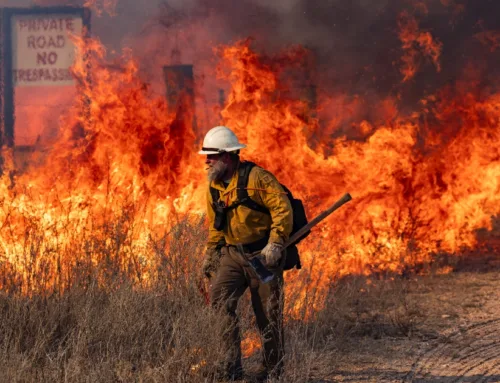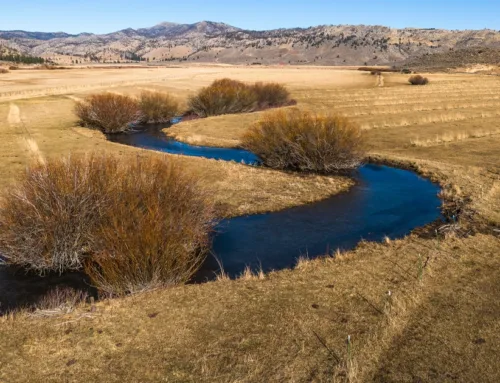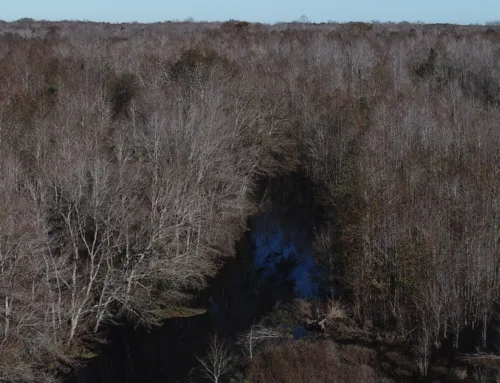Bill May Force Landowners to Shoulder Firefighting Cost
Bill May Force Landowners to Shoulder Firefighting Cost
When Smokey Bear says, “Only you can prevent forest fires,” he really means it. After several years of historic wildfires in the West that have strained firefighting budgets, burned thousands of acres, and destroyed homes, lawmakers in Washington and at the state and local levels are preparing to ask landowners to help combat the blazes before they begin.
By Joseph Guinto
Some will ask nicely: A bill in the Senate sponsored by Sen. Harry Reid, the Nevada Democrat who is that chamber’s majority leader, and by his Nevada Republican counterpart, Sen. John Ensign, would provide incentive payments for landowners to regularly clear the underbrush that helps fuel wildfires. Some will ask not so nicely: State and local lawmakers out West are considering boosting wildfire protection fees charged to landowners living in or near forested areas. In Washington state, legislators are addressing whether the current fee, $18 per every 50 acres, is high enough.
The proposed legislation is partly in response to political pressure on the U.S. Forest Service. That agency is responsible for fighting major forest fires, whether in a lead role or by providing aid to local firefighters. And that responsibility is getting more costly. In 2006, nearly 13,600 square miles of land burned in the United States, a record amount. Fighting large wildfires, like the one that broke out near the Hollywood Hills atop Los Angeles in May, can cost as much as $1 million a day. And in this decade alone, the Forest Service’s annual firefighting budget has almost tripled. It’s expected to hit $3 billion this year.
The Government Accountability Office says that growth is too much, too fast. In a report to Congress earlier this year, the GAO suggested that the Forest Service was spending too much on fire suppression and not enough on prevention.
But officials with the US Department of Agriculture, which oversees the Forest Service, say their job has been complicated by development. In particular, they say landowners whose properties are near or within forests have made fighting wildfires harder, in part because their properties can provide fuel for the fires, and have forced them to fight fires differently–focusing on protecting private properties rather than heading off fires as they creep deeper into forested areas.
In Congressional testimony this past June, Agriculture Undersecretary Mark Ray made this point clear, saying, “Every new subdivision presents … an inherently more expensive fire-suppression cost, if we’re going to defend that subdivision.”
No one is suggesting neighborhoods be abandoned, but they are suggesting that properties located deep within forests could be at risk. One budget-saving measure the Forest Service is already adopting is to let some fires in remote areas burn themselves out. This natural way of letting forests thin themselves can help prevent larger fires, but for landowners deep within forests, that’s bad news. Forest Service officials have said they will act to save lives deep in the woods, but the agency’s director of fire and aviation management told the Los Angeles Times recently that they may not act to save property there.
Regardless of Forest Service reforms, lawmakers seem intent on tasking landowners to do more. But if Reid’s legislation passes, they’ll get something in return. At the local level, there could be an extra benefit for landowners in forested areas near urban centers, and some local governments may relax anti-sprawl regulations to allow homes near forests to be built farther apart, allowing for wider roads that firefighting vehicles can more easily navigate. And there remains the possibility that local governments could fine landowners who don’t regularly clear certain types of brush.
The bottom line: The summer’s fires may be out, but the political smoke is far from clearing.




